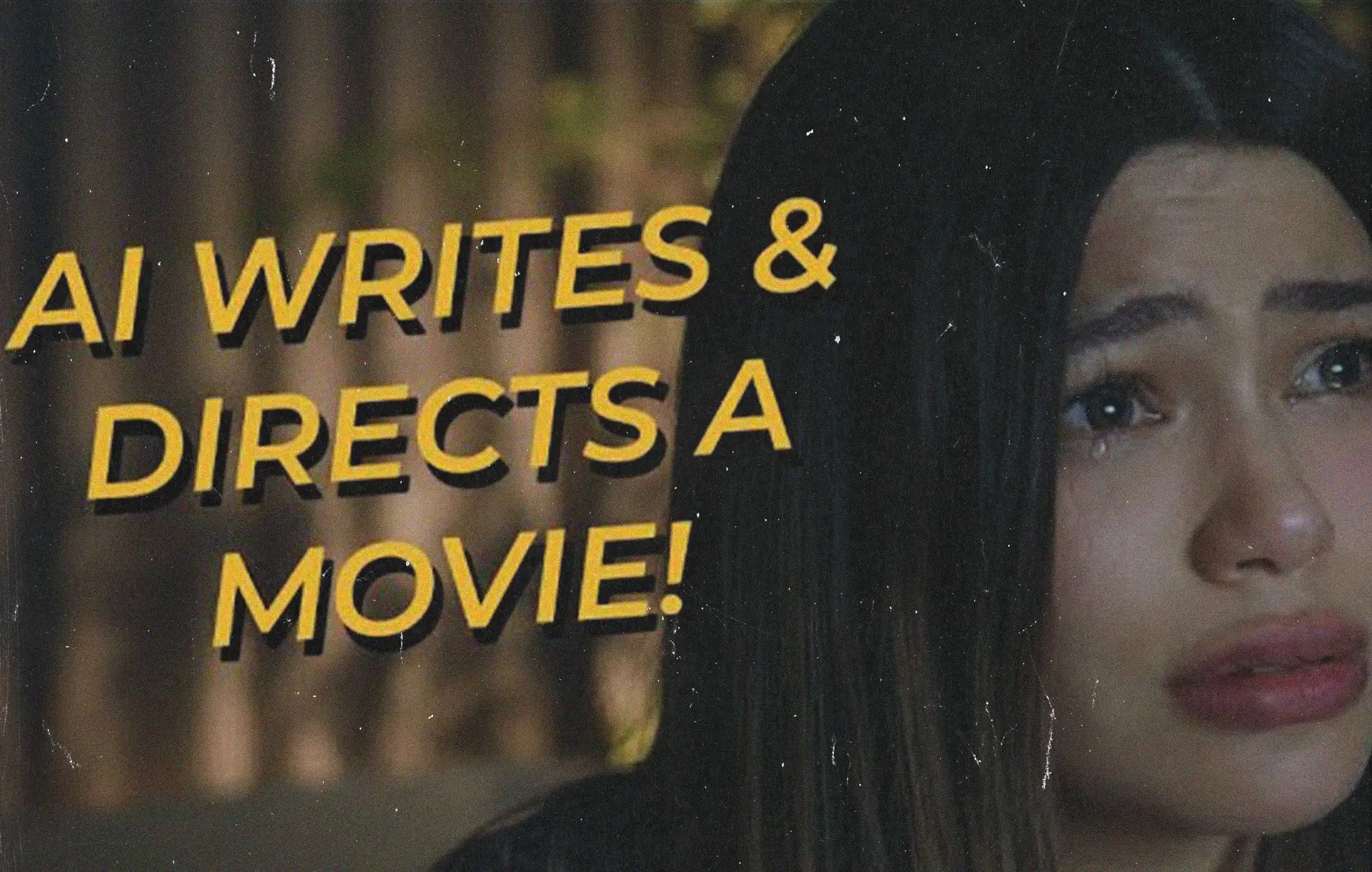Artificial Intelligence (AI) has existed since the early 20th century and has only exponentially grown as innovators continuously pushed the boundaries of what technology can do to improve humanity’s existence.
While AI initially only existed in the realm of science fiction books and films – Metropolis (1927) and Blade Runner (1982) – as a mere product of a writer’s imagination and fascination for the uncanny, today’s innovators have not only found a way to bring this technology to life but also make it so immensely powerful that it can replace humans and accomplish years-long work and learning in a matter of seconds.
In today’s breaking news in the entertainment industry, a software called ChatGPT has remarkably created the first short film that was written and directed by artificial intelligence. As an artist, this is frightening and quite frankly, a slap in the face to the craft we spent years of blood, sweat, and tears honing and mastering. But before jumping to conclusions, let’s explore what this new technology is all about as well as its benefits and detriments to the industry and artists.
They’re Coming for Us
It’s humorous to think that humans have constantly joked about robots taking over the world someday, and now it’s actually our reality that we have to fight to accept on a daily basis. According to one of the world’s largest tech companies, IBM defines AI as an area in technology that “combines computer science and robust datasets, to enable problem-solving. It also encompasses sub-fields of machine learning and deep learning… These disciplines are comprised of AI algorithms that seek to create expert systems which make predictions or classifications based on input data.”
AI technology in the entertainment industry was mainly used to aid in automating tasks such as creating schedules, storyboarding, breaking down scripts, marketing, and research analytics among others, but now it has gone beyond the imaginable by taking over responsibilities that would typically be done by a team comprised of a hundred talented artists who are experts in their craft.
Research and deployment company, OpenAI, made this possible by creating the software notoriously known as ChatGPT, which in its simplest form, is an advanced AI chatbot that specializes in generating dialogue in an interactive human-like or conversational manner. This makes it the most advanced language model ever, which has the ability to write texts, articles, essays, or create content in general with similar accuracy and coherence as that of a human.
It has gone beyond the imaginable by taking over responsibilities that would typically be done by a team comprised of a hundred talented artists
In December 2022, 28 Squared Studios and Moon Ventures released the first-ever short film The Safe Zone which was groundbreakingly written and directed by ChatGPT’s AI technology. 28 Squared Studios’ Chinese-Filipino CEO, actor, and executive producer, Richard Juan, created the film to explore how AI can help and collaborate with humans in producing quality content. The team also wanted to give a glimpse of how the creative and collaborative process between humans and AI can benefit each other when accomplishing creative projects.
“The Safe Zone tells the story of a world where AI takes over. With this story, we want to send a message that it is imperative to regulate artificial intelligence or sentient machines as we move forward to a more advanced civilization. Humans and AI can co-exist successfully if policies and regulations are in placed [sic]. Above all, we want to entertain mankind and open their minds to the many stories that we can watch and experience as we embrace the union of the present and the future,” via their official website.
The production process began when the team asked ChatGPT to generate story ideas, which they narrowed down to their top favorites then the AI wrote the scripts for each concept. The chosen script was further refined by asking the AI to expound on the different aspects of the story. Once the script was finalized, ChatGPT was also able to create a shot list for the camera department on which lenses to use, camera placement and movement, blocking, and the most conducive lighting setup. Captivatingly, the AI also recommended the costume and production design as well as provided prompts to let OpenAI’s Dall-E 2, a system that primarily focuses on image generation, create a storyboard. The process from inception to execution to release was done in a record-breaking seven days.
All That Glitters is Not Gold
This particular AI technology has undoubtedly disrupted the entertainment industry. What usually takes months and years of preparation, ChatGPT was able to accomplish most of it in just a click of a button. While it seems like an impressive feat, AI cannot fully have the innate creative and emotional ingenuity of human beings and would still require human guidance and input.
AI is also being scrutinized for its legal and ethical implications. Since the machine gets its data from people’s knowledge, behavior, preferences, accomplished work, and so forth, issues in relation to privacy, manipulation, and plagiarism would always be a topic of debate for many.
In the case of ChatGPT, AI-generated works are not protected by copyright laws, so intellectual property such as the screenplay it generated cannot be owned by anybody else unless a human being takes part in its creation. Therefore, ownership rights are difficult to distinguish. Furthermore, copyright infringement may also be an area of concern because the data that AI uses may be based on copyrighted works of people that need to be appropriately acknowledged, but it would be a challenge to do so with this technology. These are just some of the gray areas that need to be addressed and thoroughly discussed in order to determine the best practices and regulations when using AI.
Issues in relation to privacy, manipulation, and plagiarism would always be a topic of debate
AI is by far one of the most remarkable products of human intelligence and technological innovation. For artists, this technology can better our lives to some extent because it could help in saving time and resources, especially for independent filmmakers who do not have enough financial means to hire a team of experts for each department. While most artists would probably frown at the thought of AI, we should try to be open to its potential and find ways to use its abilities to enhance our creativity as well as to take some menial tasks off of our plates so we can maximize our time in focusing on creating more art for the world to see.
Check out our sit down interview with the film’s producer, Richard Juan, as part of our Convos series:




